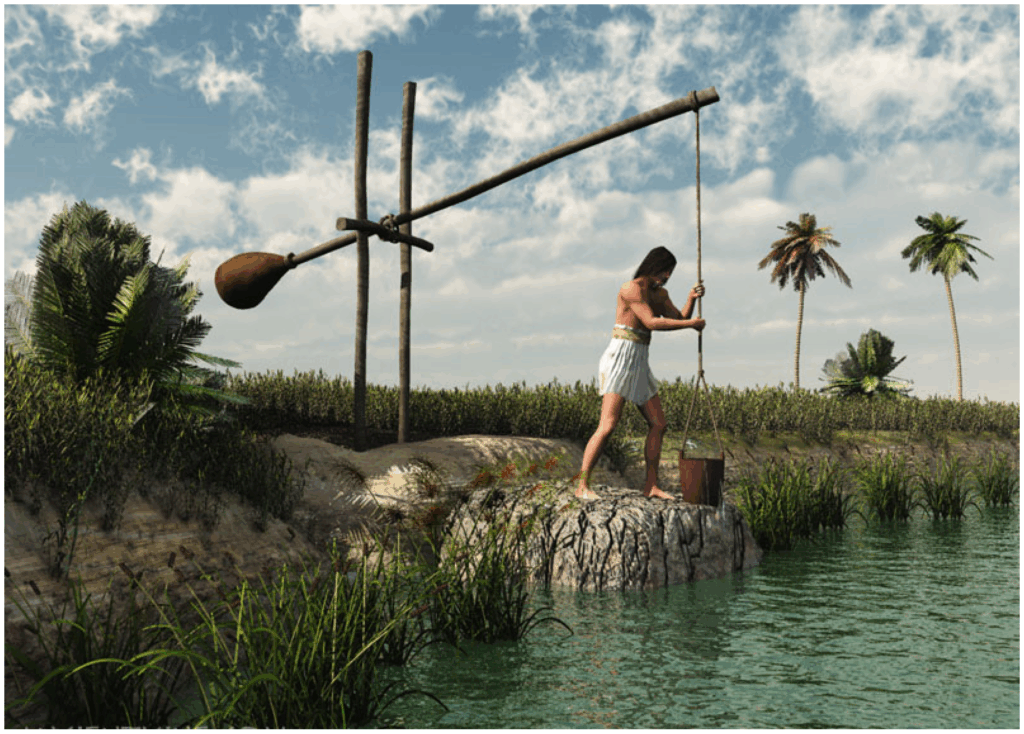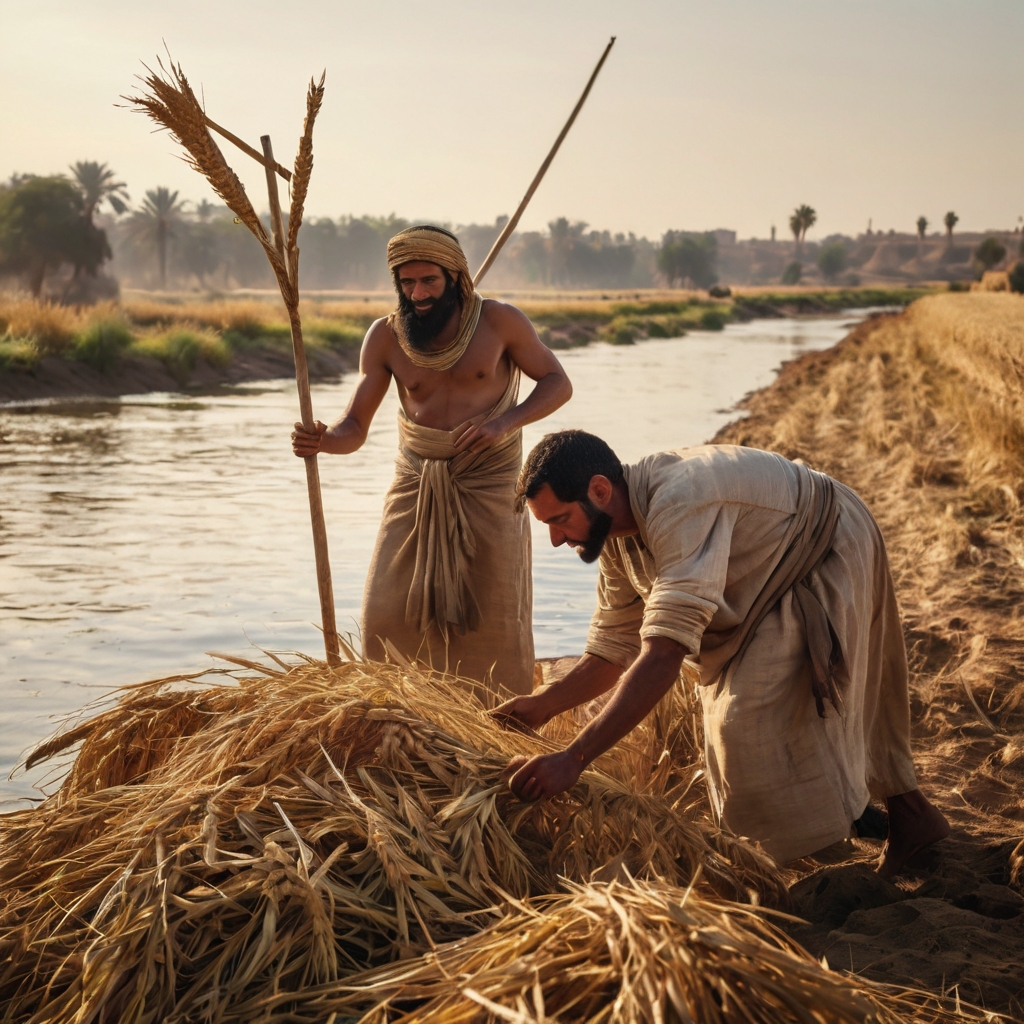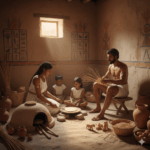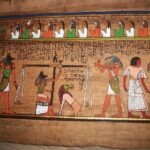Introduction
In the golden age of ancient Egypt, ancient egyptian farmers formed the backbone of society. While grand monuments and mighty pharaohs dominate popular imagination, it was the humble farmer who ensured the survival and prosperity of the kingdom. Their lives revolved around the rhythm of the Nile, whose annual floods transformed the desert into fertile fields. This article explores the tools, traditions, and daily realities of Ancient Egyptian farmers, offering a glimpse into a world that fed an empire.
The Role of Farmers in Ancient Egypt
Agriculture was the foundation of Egypt’s economy, and farmers were vital to sustaining both people and state. They cultivated wheat, barley, vegetables, and flax for clothing. In return for their labor, farmers paid taxes in grain to support temples, the royal court, and workers on monumental projects.
The Gift of the Nile
The ancient Greek historian Herodotus famously called Egypt “the gift of the Nile.” Each year, the river flooded its banks, depositing rich black silt on the fields. Farmers relied on this cycle:Akhet (Flooding Season) – Fields were underwater, and farmers worked on state projects.Peret (Growing Season) – After waters receded, farmers plowed and sowed crops.Shemu (Harvest Season) – Crops were reaped and stored, and taxes collected.Without the Nile’s rhythm, agriculture in the desert would have been impossible.
Farming Tools and Techniques

Egyptian farmers used simple yet effective tools:Wooden plows pulled by oxen for turning the soil.Sickles with flint blades for harvesting.Shaduf for lifting water from irrigation canals.Hoes and baskets for daily tasks.Despite technological simplicity, the abundance of the Nile and efficient irrigation systems allowed Egypt to produce surpluses, fueling population growth and trade.
Homes and Daily Life
Most farmers lived in mudbrick houses near the fields. These modest homes had few rooms and flat roofs, often used for drying crops. Daily life involved long hours in the fields under the scorching sun, while women baked bread, brewed beer, and wove linen at home.Meals were simple: bread, onions, and beer formed the staples, while fish from the Nile added protein. Meat was a luxury, reserved for festivals or offerings to gods.
Social Status and Obligations
Farmers occupied the lower tiers of Egypt’s social hierarchy but were respected for their essential role. They worked on land owned by the pharaoh, temples, or noble estates. During the flooding season, when fields were submerged, many farmers were conscripted to work on temple construction and other state projects, receiving food rations as payment.
Religion and Agriculture
Farming was deeply tied to religion. Farmers prayed to Hapi, the god of the Nile, for a good flood. They offered sacrifices to ensure fertility and abundant harvests. Agricultural festivals marked key moments in the farming calendar, blending spirituality with practical necessity.
Challenges Faced by Farmers
Life was not without hardship. Poor floods meant famine, while excessive flooding could destroy homes and crops. Farmers also bore heavy tax burdens, enforced by scribes and overseers. Records from ancient papyri show that failure to pay could result in severe punishment.
The Legacy of Egyptian Farmers
Without the labor of these farmers, the pyramids, temples, and art that define ancient Egypt would not exist. They were the unseen heroes of the civilization, sustaining it for millennia. Today, remnants of their way of life can still be traced along the Nile, where farming traditions continue.







Leave a Reply